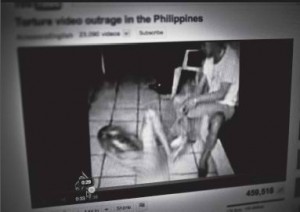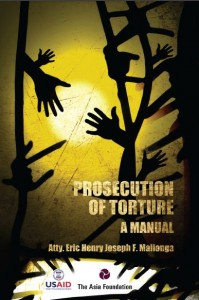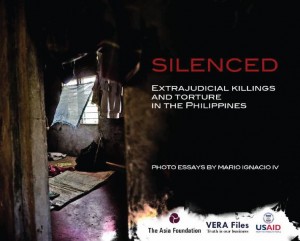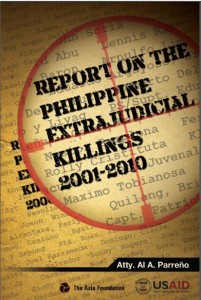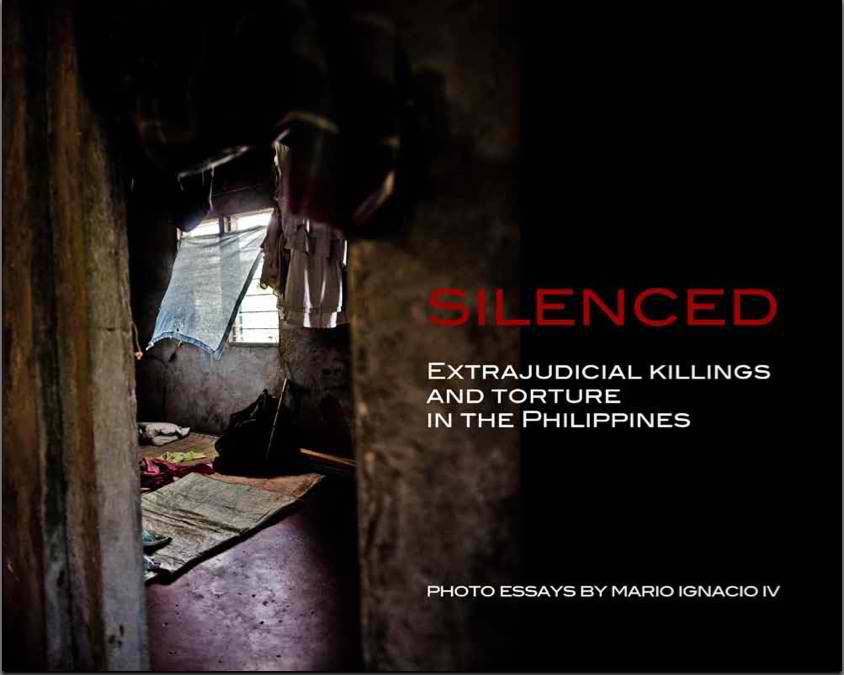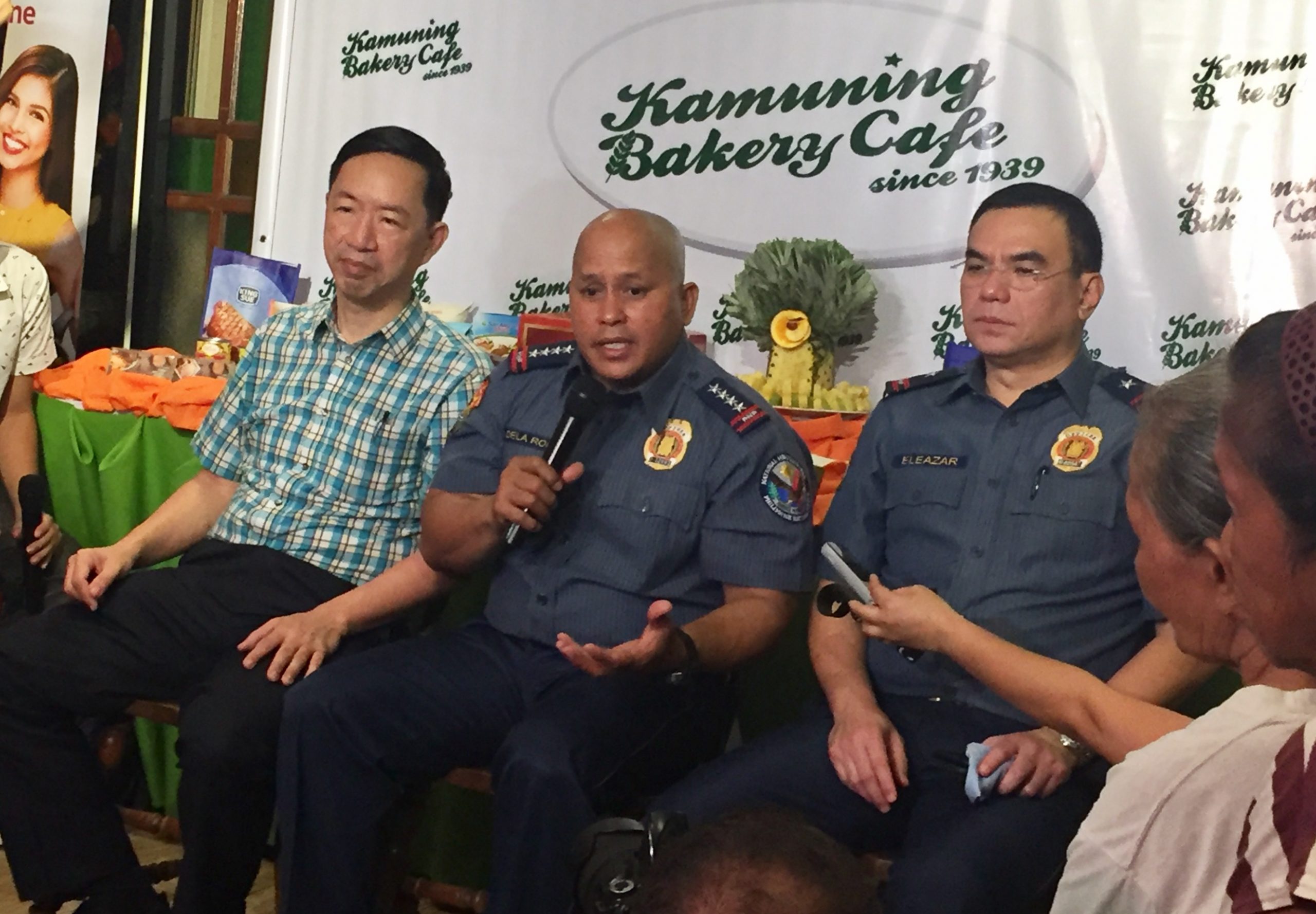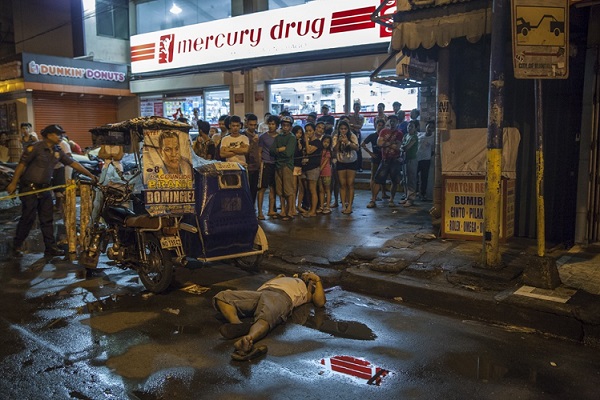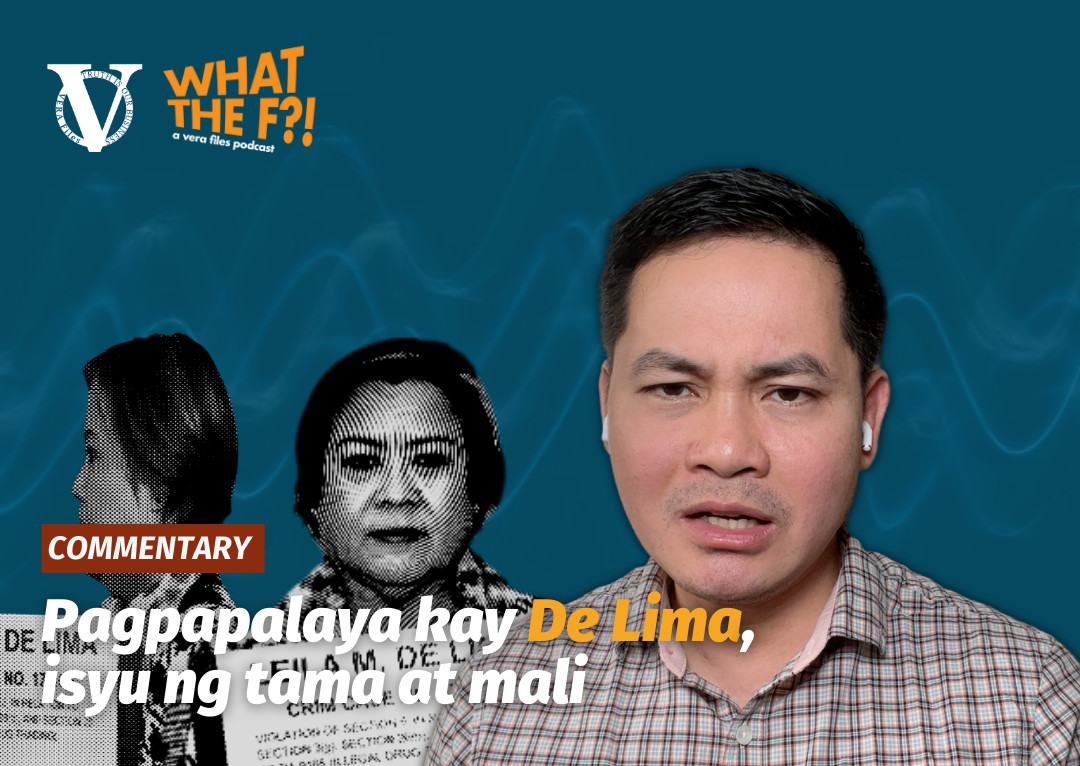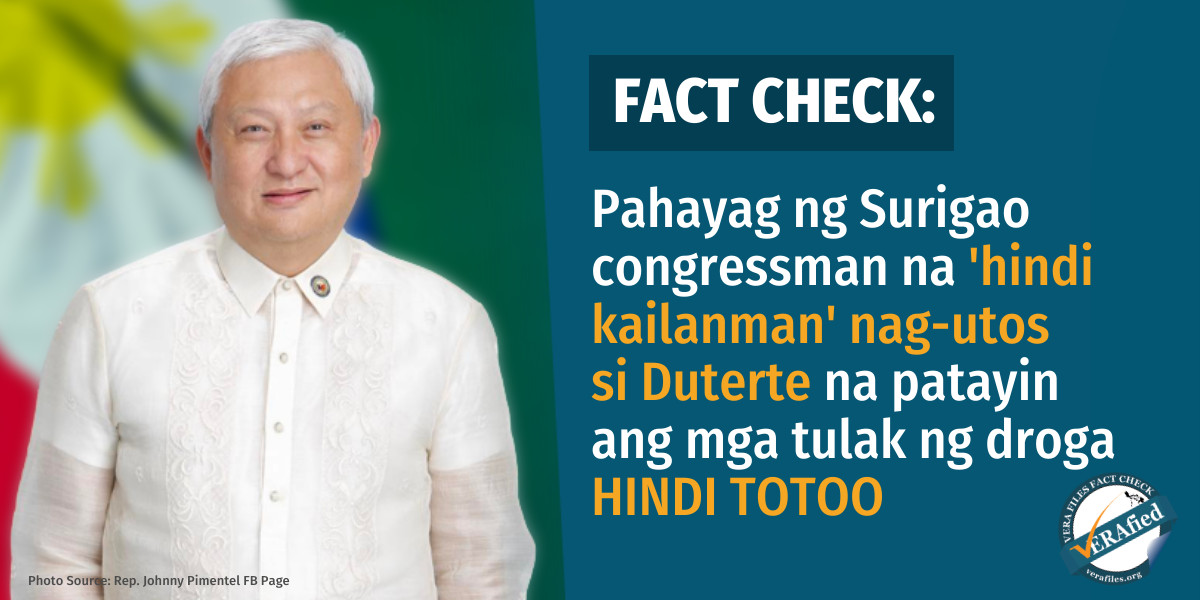By CAROLYN MERCADO
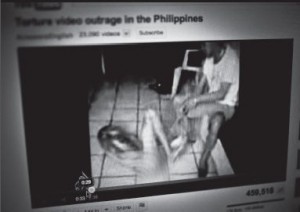
A ROBBERY suspect lies naked and writhing on the cement floor of a Manila police precinct with his genitals bound while a plainclothes policeman pulls a rope and whips him. All the while a uniformed officer stood by and watched. The torture was recorded on video via a mobile phone and was leaked to the internet and aired over the biggest television station in the country on Aug. 17, 2010. The identity of the torture victim was never known as his body was never recovered, though several families claim the man to be a relative based on his physical appearance in the video. The policemen involved who were then suspects for the crime were immediately relieved, but just one year after, they were seen reporting back to work, while an indictment by the justice department was issued only a month ago.
In another case, the provincial coordinator of the party list group Bayan Muna was leaving home to take his 12-year-old son to school on July 5, 2010, in Leno, Aklan, when a gunman shot and killed him and then fled on a motorcycle. An arrest warrant was issued by a regional trial court against the alleged perpetrator, but the Philippine National Police has not served it due to the legal machinations of the accused – consisting of several motions for reconsideration and a motion to hold in abeyance the service of the warrant of arrest. Thus, the accused remains at-large.
After a clash with the New People’s Army in late August 2010 and on Sept. 1, 2010, in a barangay in Surigao del Sur, soldiers conducted a massive military operation in the area that forced the community to evacuate to a safer place. In the course of the military operation, two farmers went missing. Despite extensive efforts by the community to search for the two disappeared, the farmers haven’t been seen since.
One would think that these incidents happened in a country ruled by a dictatorship. But they all took place in the Philippines, a democracy. Despite the advent of a new and popular administration and President Aquino’s promise to end all human rights violations, the country has not seen the last of them. Torture, extrajudicial killings, and enforced disappearances continue with impunity. They continue to be widespread and systematic, with most victims tagged as “enemies of the state” and the majority of the suspects identified as state security forces. In a span of one year, the current administration has recorded three torture cases, 27 extrajudicial killings, four enforced disappearances, and six journalist killings – totaling around 37 cumulative violations (compared to around 57 average violations per year during the time of President Macapagal Arroyo). While this is an improvement, the perpetrators still enjoy widespread impunity – a troubling reality that signals more remains to be done.
Of the more than 1,000 extrajudicial killings (including journalist killings) recorded by the Commission on Human Rights since 2001, only seven resulted in conviction, not one of whom is a military or police personnel. Lackluster efforts to investigate and prosecute serious human rights violations cases, particularly when evidence points to military or police involvement, hinder the proper disposition of cases despite Herculean efforts made by victims’ families to pursue justice in the courts. Successful conviction of perpetrators is also hindered by an inadequate witness protection program which makes witnesses shy away from testifying in court. This is exacerbated by the over-reliance on witness testimony, as forensic evidence is still a nascent science in the Philippines. Age-old problems in the criminal justice system are exacerbated in human rights cases as delays lead to the continuous harassment of victims, forcing them to drop cases for fear of retribution. Lack of a friendly legal environment, particularly the absence of laws penalizing extrajudicial killings and enforced disappearances, has made it easier for perpetrators to enjoy widespread impunity. Abusive behavior by state security forces persists because no one has gone to jail.
The Asia Foundation, through its Strengthening Human Rights in the Philippines Program, funded by the United States Agency for International Development (USAID), has produced and published a powerful set of books that candidly discuss the issues and problems surrounding human rights violations in the Philippines and at the same time proffer suggestions to end the culture of impunity. The Report on the Philippine Extrajudicial Killings (2001-August 2010), by Al A. Parreno, provides six requirements needed to curtail impunity:
- An active Commission on Human Rights to review the cases and support investigation;
- An aggressive commander in chief to openly recognize this as a problem and push for its eradication;
- An awareness campaign led by civil society and the press;
- Relentless Philippine National Police (PNP) passionate with gathering evidence;
- Proactive prosecution service; and
- An impartial tribunal within the PNP, the Armed Forces of the Philippines, an unbiased Department of Justice, and incorruptible special courts.
The Prosecution of Torture: A Manual by Atty. Eric Mallonga is an academic blueprint in the legal construct for prosecutors, both public and private, to identify torture and a pattern of action in effectively building a case for prosecution. It provides guidelines, accompanied by sample templates, for the immediate and effective documentation and marshaling of evidence in torture cases.
The photo book of Vera Files, Silenced: Extrajudicial Killings and Torture in the Philippines, is a collection of photo essays by Mario Ignacio IV. It contains the stories of 14 cases of extrajudicial killings and torture that took place in different parts of the country, from Ilocos Norte to Basilan, mostly during the term of former President Gloria Macapagal Arroyo. The photo book presents powerful images of victims and those whom they left behind as they continue their search for justice.
Curtailing human rights violations and ending impunity clearly requires more than knowledge products such as these books. However, it is our hope that these publications can help policy-makers adopt effective measures in ending torture, extrajudicial killings, and enforced disappearances; aid prosecutors in case build-up to ensure that perpetrators are held accountable; and prevent these violations from recurring.
(This article first appeared in the website of The Asia Foundation. Carolyn Mercado directs the foundation’s Law and Human Rights program in the Philippines. The views and opinions expressed in the article are hers and not those of The Asia Foundation.)
